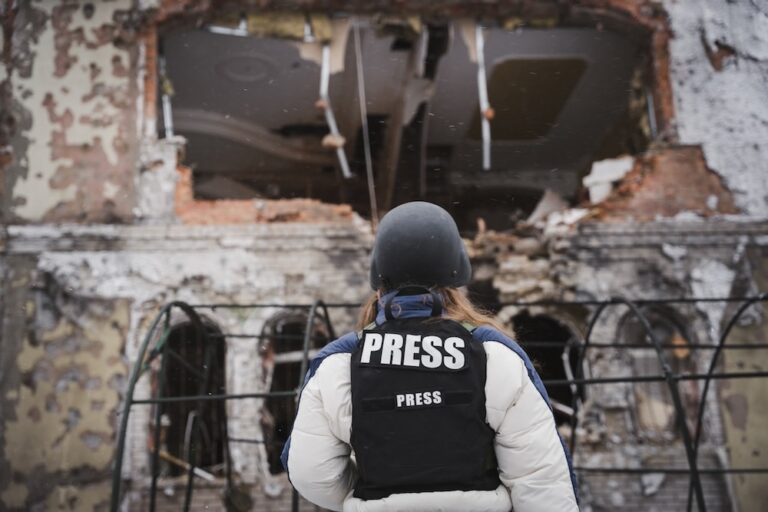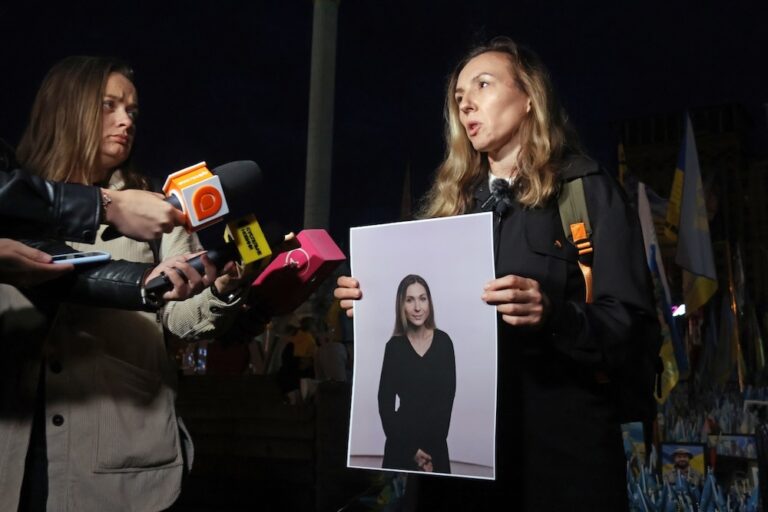The editorial offices of several state-affiliated media outlets have reportedly received directives listing events that should and should not be covered.
(IMI/IFEX) – 20 June 2011 – The “Temnyk”, the anonymous directives that tell news editors and producers what political events they should cover and what to avoid, have returned to Ukraine. Employees of the Donetsk Regional State Television/Radio Company (DRSTRC), who wished to remain anonymous, informed a ZN.UA correspondent about this issue.
According to the state media outlet employees, the directives regarding coverage of major events appeared in the editorial offices of all media outlets affiliated with the regional TRC in late May 2011.
DRSTRC employees complained that the company’s managers are very reluctant to provide equipment, transportation and air time for reporting about the events that are not among those listed in the directive. “We eventually highlighted the cholera outbreak in Mariupol (Donetsk region), without actually going to the area. Management said they had no money for petrol. Thanks to our colleagues who gave us ‘a picture’ from the area we managed to report on it,” a DRSTRC employee told the ZN.UA correspondent.
DRSTRC manager Tetyana Vents told IMI that the company is publicly owned as it is funded by the state. Therefore, they act and work within a clearly stated thematic plan.
“We must cover government activities. We strictly adhere to this because we are the state DRSTRC,” Vents explained. According to her, the company also covers cultural, educational and social activities in the region. As such, she considered the journalists’ statements to be incomprehensible.
According to IMI lawyer Roman Golovenko, the outdated Law on the Procedures for Coverage of Activities of Entities of State Power and Local Self-Government in Ukraine by the Mass Media allowed authorities to impose the topics that were to be covered. But after the adoption of the Law on Broadcasting in 2006 it was determined that owners of media outlets can influence editorial policy, but only by consolidating the relevant provisions in the editorial statute of the TRC.
“Public authorities are funded by taxpayers, so they must work in the public interest. Therefore, state-owned media outlets should cover socially important topics, rather than just the activities of the authorities. And they should be free to criticize the authorities if they do not act according to the public interest, because the budget for the state-owned media also comes from the country’s citizens,” the IMI’s lawyer said.
In the years spanning 1998 to 2004, the Kuchma presidential administration issued the so-called “Temnyk” directives, containing a list of topics that should be covered by public and private media outlets. This was one of the main means of censorship under Kuchma’s presidency.


